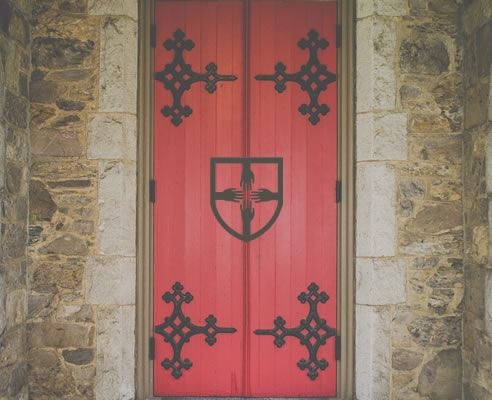
Last month Jesus told us to love our neighbors, ourselves, and goodness knows, even our enemies. Could this commandment be related to Jesus’ recent journey into the wilderness where he meets our greatest enemy called Satan?
In her last book, Inspired, Rachel Held Evans leaves with us her experience of wilderness, enemies, and how this relates to Jesus and the God of love. She reminds us that our enemies will eventually drive us into the wilderness. Goodness knows, our addictions, once our friend, now our enemy, drove us into a wilderness where all hope seemed lost. Our enemy, our addiction, often causes us to flee to a wilderness to escape the life our enemy has brought on us. We are like Hagar, and her son turned out by Abraham and Sarah, or Jacob fleeing his brother Esau, or Elijah fleeing Jezebel. Evans believes that even the God of love, when clothed in human form, visits the wilderness to prepare for future head-on meetings with the devil.
The wilderness is usually thought of as a scary or barren place where God seems even more absent. Instead, I have learned from my daughter, who is a wilderness forester, that the wilderness is a most sacred place where we, like Elijah, best hear the silent voice of God. The wilderness is out of sync with our usual routine. It disorients us and leads us to a different way of thinking where we learn that the only way to face our enemies within and without is by connecting to the God of love.
We all have had experiences where we have been harmed: death of a loved one, loss of a job, struggling with our addiction, physical or verbal abuse, a severe illness, depression, other mental disorders, difficulty with our children, parents, or siblings, struggling with our present political and pandemic scene. Rachel reminds us that we are driven into the wilderness from these experiences. We will always learn a great deal about ourselves and especially about the God of love that has been there before us and with us. That is the experience of the children of Israel, Hagar, Jacob, and even Jesus, our constant companion. When we are driven to this more barren place, we meet and are saved by the God of love and are attended by angels. We realize we have been living with the personification of evil, the one who lives only for himself without love, that part of us where love for others does not live because our addiction has become our love, our God.
When Jesus confronts the devil, the evil one, first he listens. This is what we are called to do, to listen. We will soon hear another voice that was always in us, but our addiction blocked it out. That tiny voice of the love of God within us calls us a different life. Evil, our addiction, and our self-interests do not understand this voice. Evil can never overcome this love.
Our usual modes of travel, most of the people who helped us seem gone in the wilderness. It is so quiet we can hear the still small voice of God within us. Our enemy, our addiction, once our friend, has led us to hear a higher power that now can be most heard in the quiet of a wilderness experience. This time, we listen, and our life is changed. The enemy, our addiction, has led us to a new way of life that we could only see and hear in the wilderness.
Lastly, Rachel reminds us to name these wilderness experiences. Hagar names the well in the wilderness which saves her life and her son, Ishmael, “I have seen the God who sees me.” Just as Jacob is about to meet Esau in the wilderness, he wrestles with God and names the place Peniel, which means “ Face of God.”
In these next few weeks, we have another opportunity to be quiet and hear the powerful voice that saved us when all other voices within were silenced. The name of our yearly liturgical wilderness experience is called Lent.
Lent calls us to remember where God was with us in the wilderness and led us to recovery. Lent is a time to remember that our addiction was what brought us to our knees in the wilderness and a life beyond compare. Lent is a time for gratitude.
One more time, we have an opportunity to listen to a voice that often can only be heard when we intentionally live in silence and listen.
Lent is a time for silence and listening.
Rachel Held Evans in Inspired ( Nelson Books 2018) pp. 48-50.
Joanna. Joannaseibert.com
 In the early days of the Church, when the front door of the parish was painted red it was said to signify sanctuary – that the ground beyond these doors was holy, and anyone who entered through them was safe from harm.
In the early days of the Church, when the front door of the parish was painted red it was said to signify sanctuary – that the ground beyond these doors was holy, and anyone who entered through them was safe from harm.